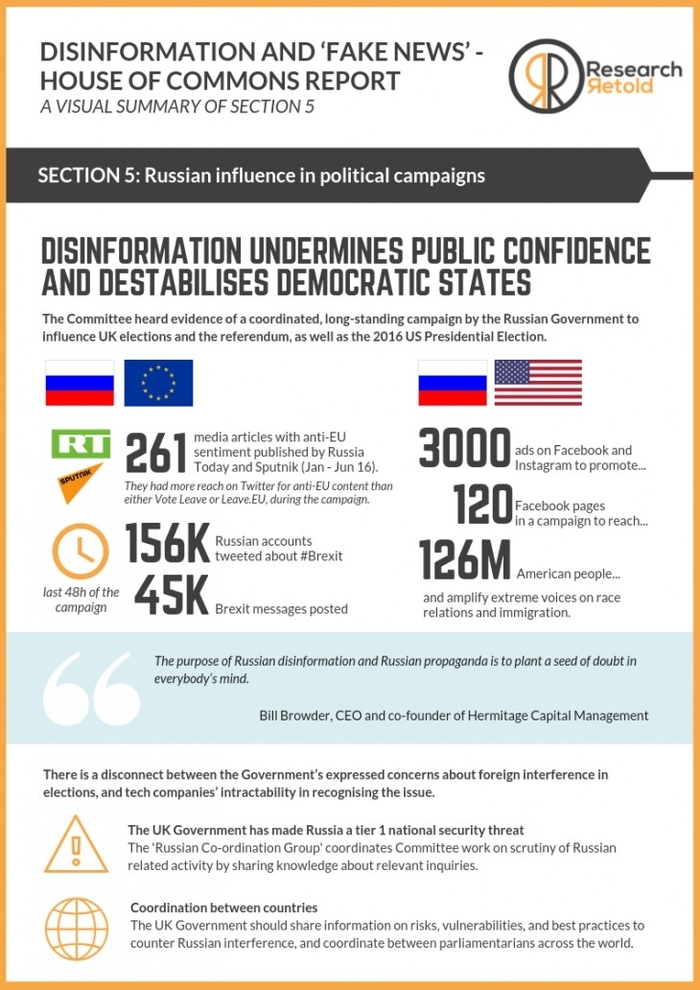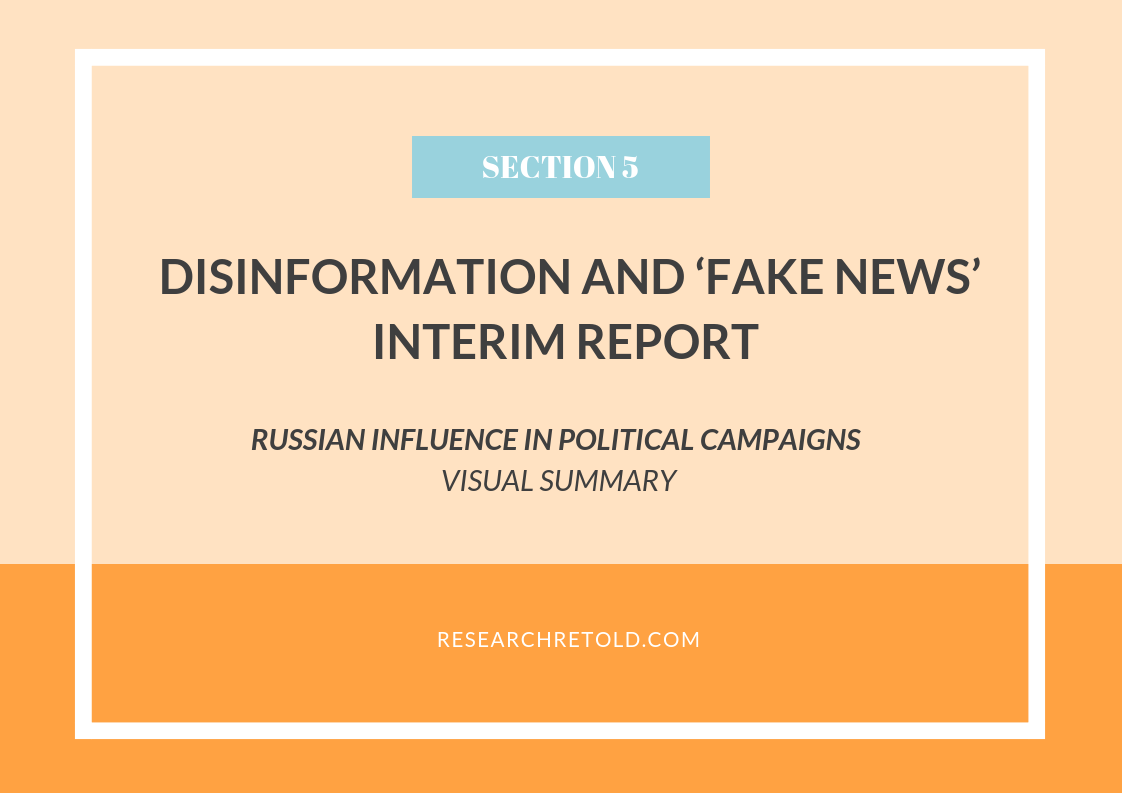In this blog post, we look at the issue of Russian influence in political campaigns, with reference to the EU-UK Referendum and the 2016 US election.
This post is based on Section 5 of the Disinformation and ‘fake news’ report and is the fifth in a series of seven posts.
Let´s begin!
About the report
In July 2018, the House of Commons Digital, Culture, Media and Sport Committee published an Interim Report titled Disinformation and ‘fake news’.
The scope of this report:
To study ‘the spread of false, misleading, and persuasive content, and the ways in which malign players, whether automated or human, or both together, distort what is true in order to create influence, to intimidate, to make money, or to influence political elections.’
A specific focus of the report is to address concerns related to the “political use of social media”.
The report includes seven sections:
1. Definition of fake news and how to spot it
2. Role of tech companies – definition, legal liabilities
3. The issue of data targeting, based on the Facebook, GSR and Cambridge Analytica allegations
4. Political campaigning
5. Russian influence in political campaigns
6. Co-ordination of Departments within Government
7. Digital literacy
What concerns exist around Russian influence in political campaigns?
In this section, the report talks about the extent of Russian influence in political campaigns. It focuses on the EU referendum in the UK as well as the 2016 US Elections. The report offers some details about online campaigns initiated by Russian media and outlets that promoted disinformation.
Moreover, the report touches on the use of the data obtained by Aleksandr Kogan in Russia, indicating that the ICO is investigating this matter. Following this, the report looks at the role of social media companies in disseminating Russian disinformation.
The report highlights Facebook’s unwillingness to conduct its own research into how the platform was used to promote disinformation. This feeds into the inflexibility of tech companies to recognise disinformation as an issue.
Furthermore, the issue of Russian influence in political campaigns is explored through the activities of Aaron Banks and his business links and Russian connections. There is no definitive outcome regarding the legality of his interactions. The report highlights that the National Crime Agency is involved in investigating these matters.
Lastly, the section discusses the UK government’s attitude towards Russia. In April 2018, the ‘Russia Co-ordination Group‘ was formed to coordinate Committee work relating to the scrutiny of Russian-related activity. This section concludes by urging cooperation and sharing of best practices between countries in order to combat the Russian influence in political campaigns.
VISUAL SUMMARY OF SECTION 5

Next week we will tackle Section 6 of the Disinformation and ‘fake news’ report.
